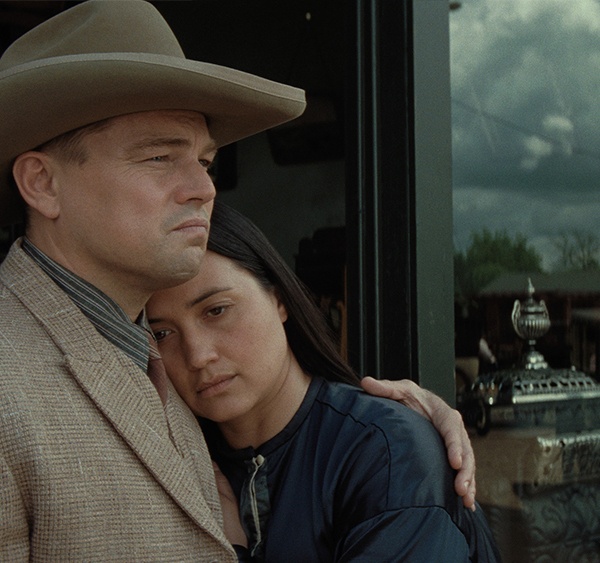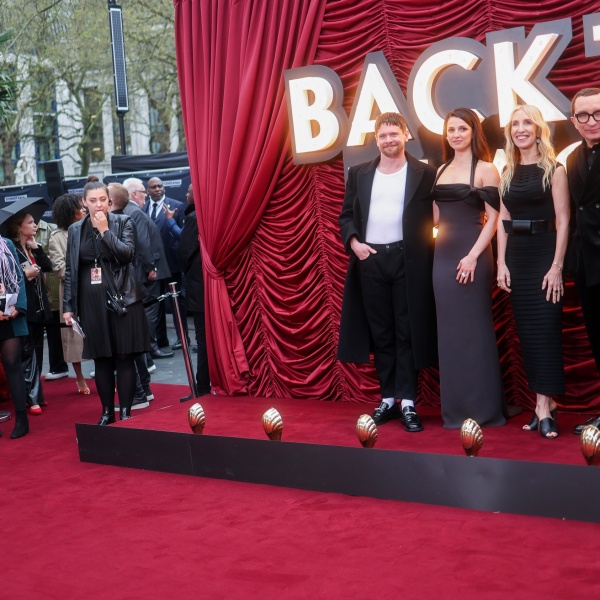
“The Change-Up” is nothing if not honest. Before the title card has even popped up on screen, Jason Bateman, playing a stressed out husband, father, and (pivotally) lawyer, gets poop sprayed onto his face and, seconds later, into his mouth. It’s a very gross gag very early on and sets the stage for what might be, in the summer of raunchy comedies, the very raunchiest of them all. The problems arise, later on, though, when the truly outrageous stuff uneasily mingles with more earthbound relationship issues and the film winds up being a tepid mixture of both.
Of course, the hook of “The Change-Up” occurs early on, following a night of sports bar camaraderie between Dave (Bateman) and Mitch (Ryan Reynolds), a buddy of his who loafs around all day, occasionally scoring an acting gig (the acting subplot makes virtually no sense since the movie, for undoubtedly arcane reasons involving tax incentives, takes place in Atlanta, Georgia). Mitch sleeps late and smokes pot and has casual sex involving exotic positions that Reynolds has clearly (and wonderfully) adlibbed to his heart’s content. In short: Mitch lives the life that Dave — burdened by a family and a potential partnership in a law firm (he works alongside the dreamy Olivia Wilde) — can only dream of. Dave complains that he doesn’t have time to finish reading a book and, thanks to the stress, hasn’t had a regular bowel movement in months. Yes, it all goes back to the poop.

While the dudes are stumbling back from the sports bar, they stop in a park to relieve themselves in a fountain. While urinating, they openly process that they wish they could have each other’s lives and, thanks to the magic of the fountain (this is about as much explanation as you’re going to get), they wake up the next day in each other’s bodies. Mitch has now assumed the identity of Dave (in the same bed as Dave’s lovely wife, played by Leslie Mann) and his responsibilities including his family, while Dave is transposed to the more chiseled physique of Mitch, in his lousy apartment littered with the debris of the unburdened and under-employed.
For a while, anyway, the movie just chugs along on the goodwill of watching the two actors play each other, a staple of this kind of “body swapping” comedy that rose to popularity in the 1980s but, in fits and starts, has cropped up occasionally since in movies like John Woo’s “Face/Off” or, more recently, the underrated “17 Again.” Bateman, looking at a mirror and examining his arms, lets a pained expression grip his face while he says, “Ever heard of a push-up, buddy?” while Reynolds steps around his apartment like he’s wandered into some post-apocalyptic landscape. 
In particular, it’s a blast to see Bateman, so often cast for his ability to ratchet up nervous tension to almost unbearable levels of awkwardness, play a character this loose and unfettered, casually profane and sexually forward (with many come-ons directed at the aforementioned Wilde, who sadly has little to do but look cute in her pencil skirt). The Bateman role is the showier of the two performances, and the most burdened by the forced characterization of the by-the-numbers script (by Jon Lucas and Scott Moore, who wrote the original, barely recognizable draft of “The Hangover”), since in his pre-body swap days, Dave has let his marriage to Leslie Mann’s Jamie fall into disrepair, a sad casualty of his workaholic lifestyle.
So the stakes are set: Dave, through Mitch, is able to slow down and appreciate life, like Lightning McQueen (in a “enjoying life” montage set to Coldplay‘s “Every Teardrop Is A Waterfall,” we get to see him do things like reading Jonathan Franzen’s “Freedom” and, yes, pooping regularly) and Mitch, in Dave’s body, puts his nose to the grindstone for the first time ever, working hard and showing people (including his disapproving father, played by Alan Arkin) that he’s worth something. The message might be pat, its platitudes overly simplistic, and the goals more easily won than should be (the biggest obstacle to them becoming unstuck is the removal and relocation of the magical fountain, which proves to be little more than a stumbling block). In fact, the whole middle section of the movie at times feel like a mystically embellished version of “Hall Pass” (something that no one wanted), with Reynolds spends a lot of time flirting with the possibility of out-of-body infidelity with Wilde. 
But the main problem that the dull script and its equally slack execution (by “Wedding Crashers” director David Dobkin) presents is a clash of comedic styles that becomes too violent and messy to overcome. On the one hand, we have the very real scenes of domestic distress, with Mann beautifully playing the role of a woman who has to beg for her husband’s attention, side-by-side a scene where Ryan Reynolds, in his capacity as an actor, is forced to enthusiastically finger the butt-hole of an aged porn star (while a cartoony Eastern European director screams “Click the mouse! Buy the app! It’s like you’re playing Angry Birds!”) More distressingly, there’s a later scene where the two young children put themselves in mortal danger, as Reynolds-as-Bateman casually looks away. Had an infant actually had their fist chewed up by a blender, the audience probably would have bolted. But since it ALMOST happens, then that’s perfectly acceptable.
But this kind of tonal inconsistency is emblematic of the half-finished, sloppy feeling of “The Change-Up.” Everything seems like an afterthought, from the questionable visual effects (there’s a ghostly shimmer to a scene when Bateman dumps milk on the infant twins) to the movie’s approach to sex (wherein most of the women’s breasts have a bizarre ethereal glow that seems to indicate some kind of post-production tinkering or possible prosthetics) to the script, which crescendos in a limp climax that makes painfully little sense, especially given how everything has been set up before it. With a little more nuance and emphasis on the more emotionally rooted marital stuff, “The Change-Up” could have been a winningly goofy riff on a nostalgic sub-genre. But as it stands, it’s more like a hastily thrown together gag-a-thon, with little interest in anything beyond how funny it is when somebody says “fuck” a lot or has sex with a super-pregnant woman. Watching “The Change-Up,” you’ll wish you could body swap with someone who is watching a funnier movie. [C]
Aiming for broad gross-out laughs and ridiculous moments of comedic exasperation coupled with genuinely mature scenarios of martial disharmony and dispiriting sequences of stunted male growth, Universal‘s R-rated body switch comedy is a curious thing. Directed by David Dobkin, the man behind the modern-day R-Rated comedy classic, “Wedding Crashers,” the picture has a similar aspiration to mix bawdy raunch with heartfelt scenes centered on the pains of growing up for 30-something males suffering from full-blown arrested development.
However, while ‘Crashers’ seamlessly makes these transitions (a wicked mix of humor and heart that never gets too serious), “The Change-Up,” by comparison is wildly messy, going for both themes with exaggerated zeal. Both comedy and heart swing for the fences, and strangely enough, both work, but it also often feels like you’re watching two very different and broad movies. And the set-up is admittedly cumbrous.
The first act, naturally, is a mess. Written by “The Hangover” writers (Jon Lucas and Scott Moore), this disheveled tenor is slightly forgivable if only because there’s a wildly absurd premise the authors have to deal with: two men piss into a wishing fountain and their hearts and minds are switched into each others bodies. The conceit is barely passable in terms of audience suspension of disbelief, but both writers and directors are fully aware, not attempting to make apologies for it and yet getting it over with as soon as possible so as to commence with the story. The idea and premise is acutely ludicrous, but to the film’s credit, it wraps enough hilarity and moving moments (no, really) to almost make you forget this film is attempting to pull of a grossly outdated and preposterous concept.
After the clunky opening goes off to the races — full of broad, not-that-funny laughs (see the poop jokes) and uneven character scenarios (Reynolds bachelor character is just unbelievably immature, even for this film) — the comedy finally settles into a strong groove once the switch has been made and both characters grapple with their newfound circumstances. And the ingenuity of the picture comes with the switch. Jason Bateman’s straight-laced family man Mitch and Ryan Reynolds’ wake-and-bake layabout characters are comfortable achetypes for both actors, but when the prototypes are flipped — Bateman becomes the foul-mouthed irresponsible Dave and Reynolds becomes the worrisome and accountable Mitch — the picture begins to truly shine. As do the actors who appear to be relishing this twist on their customary paradigms. Bateman especially seems to be having a ball ditching the exemplar straight-man role he’s been playing for what seems like the entirety of his post “Arrested Development” career. Even Reynolds, very at home with comedy, is particularly good at trying to embody the spirit of good man, always trying to do the right thing.
Most body-switching comedies often use disparate age (“Big,” and “13 Going On 30“) for their thematic and comedic fulcrum, transforming their adult characters into children so these protagonists can eventually transcend the problems of adulthood and retain that youthful, seize-the-day teen spirit for the rest of their days. And “The Change-Up” largely dispenses with that idea, instead utilizing the trope of contrasting best friends — both feeling an emptiness in their lives — who yearn for something more therefore pining for each other’s existence: one a serious fuck-up, the other, an orderly family man sometimes pushed to the edges due to superabundance of responsibilities. While it’s still not entirely novel, the stunted grass-is-always-greener thesis and grown-up appreciating-what-you-have motif are complementary and a welcome replacement concept. In that sense, “The Change-Up,” has an incredibly male-centric viewpoint. It’s a film made by men, for men. It’s female characters nothing more than two more models: one an object of lust (Olivia Wilde), the other representing a durable, but dull form of matriarchal security (Leslie Mann). But while underwritten, both Mann and Wilde both bring their various charms to the picture and Mann in particular does an admirable job of selling all the film’s heartfelt moments where she conveys the idea of being the under-appreciated and undervalued mom (and communicating to both men how selfish they are). Perhaps the film undoes this strength by showing Mann and Wilde in various states of undress (Mann’s surprisingly naked in a few sequences), but again, this is an (uneven) film for men, and arguably one exactly aimed at married men or those soon about to reach that age. 
Often times it’s not the grammar, but the feeling that counts. Sure, the Ryan Reynolds’ subplot with his father (played by Alan Arkin in a totally thankless role) is thin and trite but it sets up Reynolds’ arc of the irresponsible man who’s constantly disappointed his father, but secretly wants to redeem himself. And while fromage on paper, the montage of the uptight Mitch (now played by Reynolds) finally learning to relax and accomplish all the little things he never has time for, is quite inspiring and sweet-natured — the latter being an endearing tone that runs through the movie that earns itself lots and lots of points next to the lesser moments. And yes, there’s some crude and crass stuff that doesn’t really work either. There’s some CGI baby humor that is moronic and an unfortunate choice throughout. The “light porn” subplot of Reynolds’ character having to — gross spoiler — stick his thumb up some aging porn star’s ass is too boorish to be funny, even in a picture with lots of fun, and stupid, juvenile laughs, but overall, “The Change-Up,” even as it stumbles to the finish line, has more enjoyable laughs than it has gaffes.
And perhaps its just a matter of not asking for too much. As suggested by our aforementioned reivew, results may vary, and this review could be entirely subjective, but for this writer’s money, in a summer of very uneven R-Rated comedies, the absurd and tonally blotchy ‘Change-Up,’ is still the funniest and most amusing of them all. [B] – RP




